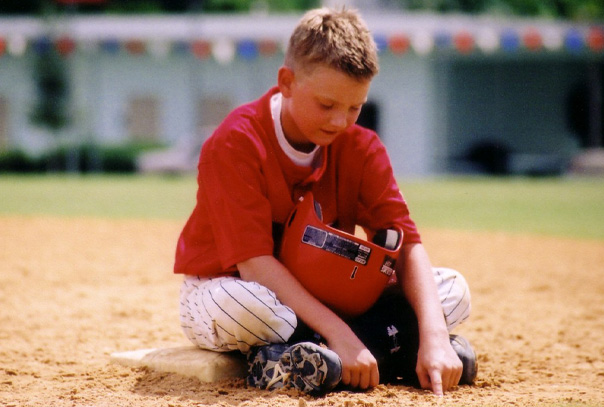
*Disclaimer*
I recently wrote an article detailing a coach's responsibility to coach everyone on their team. The subject of this article stands in direct contradiction of that aforementioned piece; words that, despite what I'm about to tell you, I believe in it as strongly now as I did when I stressed the importance of coaching everyone just a few short weeks ago.
Spend a long enough time in coaching, and you will soon be hit with one of the more frustrating certainties that come with the profession: you're not going to be able to turn everyone into a Hall of Famer. It's a harsh reality when you pour everything that you have into a player and for whatever reason, they were unable to put it all together the way you envisioned. It's a blow to our ego.
But as frustrating as that experience may be, there is one that is worse.
Much worse. We're not talking about the player who just can't seem to figure it out; rather it's the player who isn't open to trying. The player who won't even listen to a word we say. The guy who won't fully buy-in. It's the kid we label "uncoachable."
In professional baseball, when a player gets drafted, they have shown enough ability and potential for a Major League club to use one of its select number of picks because someone in that organization thinks they have what it takes to––at some point––become a Major Leaguer. The process of becoming a Big Leaguer is one that takes most years to see through. it's a process that involves a lot of people, from every corner of the player's life both on and off the field, playing their part in trying to help that player reach his potential.
The majority of players truly appreciate the manner by which so many others invest in them and take advantage of the many opportunities and avenues to develop. While only a handful reach their ultimate goal of Major League stardom, they all tend to enjoy significant growth as players and people when all is said and done. All––that is––except the rare player who doesn't want help. The player too stubborn to change. The player who knows it all. For as challenging as this type of personality is to coach, there is a simple resolution for the player who doesn't want to be coached: don't coach him.
On the surface, as mentioned in the disclaimer to this article, that approach to
not coach someone goes against everything I believe in at my core. But if there is one thing I have realized in the last 15-plus years of coaching, it's that players need to be open to being coached in order to actually
be coached. For those who aren't, the time and effort spent trying to get through to them turns out to be a frustrating waste of time and effort in a lot of cases.
At the end of the day, the players' career is theirs. They own it. So even if they are doing something that we, as coaches, know won't work––like a long swing or a disjointed delivery––if they are not willing to change, then by taking a step back from trying to change them gives them ownership of their results, both good
and bad. And if you're right as a coach and they do fail on their own, a special moment often happens soon thereafter. They will come asking for help. And that's when you got 'em. That uncoachable kid is now open and ready to be coached, in large part because you made the decision to walk away and stop coaching him.
A lot of coaches are under the impression that they have to be actively coaching their players all the time, in every imaginable way. There is a time and place to be hands-on, sure, but just as important, we have to recognize those times when it's more beneficial to take a step back and not coach. Believe it or not,
not coaching often
is coaching––especially for those who aren't quite ready for you to help them. Not coaching the "uncoachable" kid may very well be the only approach by which you will eventually be able to coach him after all.